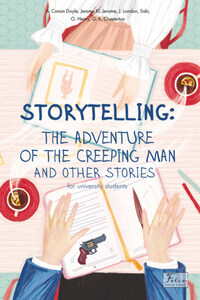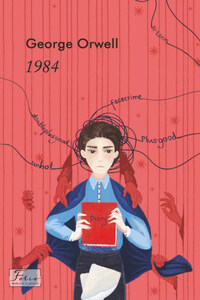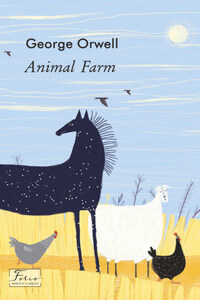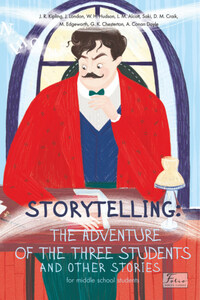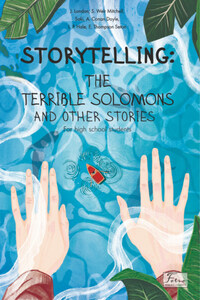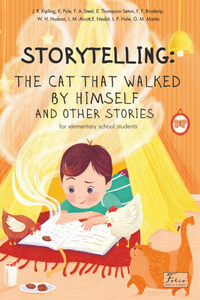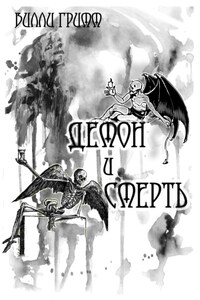The degeneration of Thomas Henry
by Jerome Kl. Jerome
THE most respectable cat I have ever known was Thomas Henry. His original name was Thomas, but it seemed absurd to call him that. The family at Hawarden would as soon think of addressing Mr. Gladstone as ‘‘Bill’’. He came to us from the Reform Club, via the butcher, and the moment I saw him I felt that, of all the clubs in London, that was the club he must have come from. Its atmosphere of solid dignity and petrified conservatism seemed to cling to him. Why he left the club I am unable, at this distance of time, to remember positively, but I am inclined to think that it came about owing to a difference with the new chef, an overbearing personage, who wanted all the fire to himself. The butcher, hearing of the quarrel, and knowing us as a catless family, suggested a way out of the impasse that was welcomed by both cat and cook. The parting between them, I believe, was purely formal; and Thomas arrived prejudiced in our favor.
My wife, the moment she saw him, suggested Henry as a more suitable name. It struck me that the combination of the two would be still more appropriate, and accordingly, in the privacy of the domestic circle, Thomas Henry he was called. When speaking of him to friends, we generally alluded to him as Thomas Henry, Esquire.
He approved of us in his quiet, undemonstrative way. He chose my own particular easy-chair for himself, and stuck to it. An ordinary cat I should have shot out, but Thomas Henry was not the cat one chivvies. Had I made it clear to him that I objected to his presence in my chair, I feel convinced he would have regarded me much as I should expect to be regarded by Queen Victoria were that gracious lady to call upon me in a friendly way, and were I to inform her that I was busy, and request her to look in again some other afternoon. He would have risen and have walked away, but he never would have spoken to me again so long as we lived under the same roof.
We had a lady staying with us at the time – she still resides with us, but she is now older, and possessed of more judgment – who was no respecter of cats. Her argument was that, seeing the tail stuck up, and came conveniently to one’s hand, that was the natural appendage by which to raise a cat. She also labored under the error that the way to feed a cat was to ram things into its head, and that its pleasure was to be taken out for a ride in a doll’s perambulator. I dreaded the first meeting of Thomas Henry with this lady. I feared lest she should give him a false impression of us as a family, and that we should suffer in his eyes.
But I might have saved myself all anxiety. There was a something about Thomas Henry that checked forwardness and damped familiarity. His attitude toward her was friendly, but firm. Hesitatingly, and with a newborn respect for cats, she put out her hand timidly toward his tail. He gently put it on the other side, and looked at her. It was not an angry look nor an offended look. It was the expression with which Solomon might have received the advances of the Queen of Sheba. It expressed condescension, combined with distance.
He was really a most gentlemanly cat. A friend of mine, who believes in the doctrine of the transmigration of souls, was convinced that he was Lord Chesterfield. He never clamored for food, as other cats do. He would sit beside me at meals, and wait till he was served. He would eat only the knuckle end of leg of mutton, and would never look at overdone beef. A visitor of ours once offered him a piece of gristle; he said nothing, but quietly left the room, and we did not see him again until our friend had departed.
But everyone has his price, and Thomas Henry’s price was roast duck. Thomas Henry’s attitude in the presence of roast duck came to me as a psychological revelation. It showed me at once the lower and more animal side of his nature. In the presence of roast duck Thomas Henry became simply and merely a cat, swayed by all the savage instincts of his race. His dignity fell from him as a cloak. He clawed for roast duck, he groveled for it. I believe he would have sold himself to the devil for roast duck.
We accordingly avoided that particular dish; it was painful to see a cat’s character so completely demoralized. Besides, his manners, when roast duck was on the table, afforded a bad example to the children.
He was a shining light among all the cats of our neighborhood. One might have set one’s watch by his movements. After dinner he invariably took half an hour’s constitutional in the square; at ten o’clock each night, precisely, he returned to the area door, and at eleven o’clock he was asleep in my easy-chair. He made no friends among the other cats. He took no pleasure in fighting, and I doubt his ever having loved, even in youth; his was too cold and self-contained a nature; female society he regarded with utter indifference.
